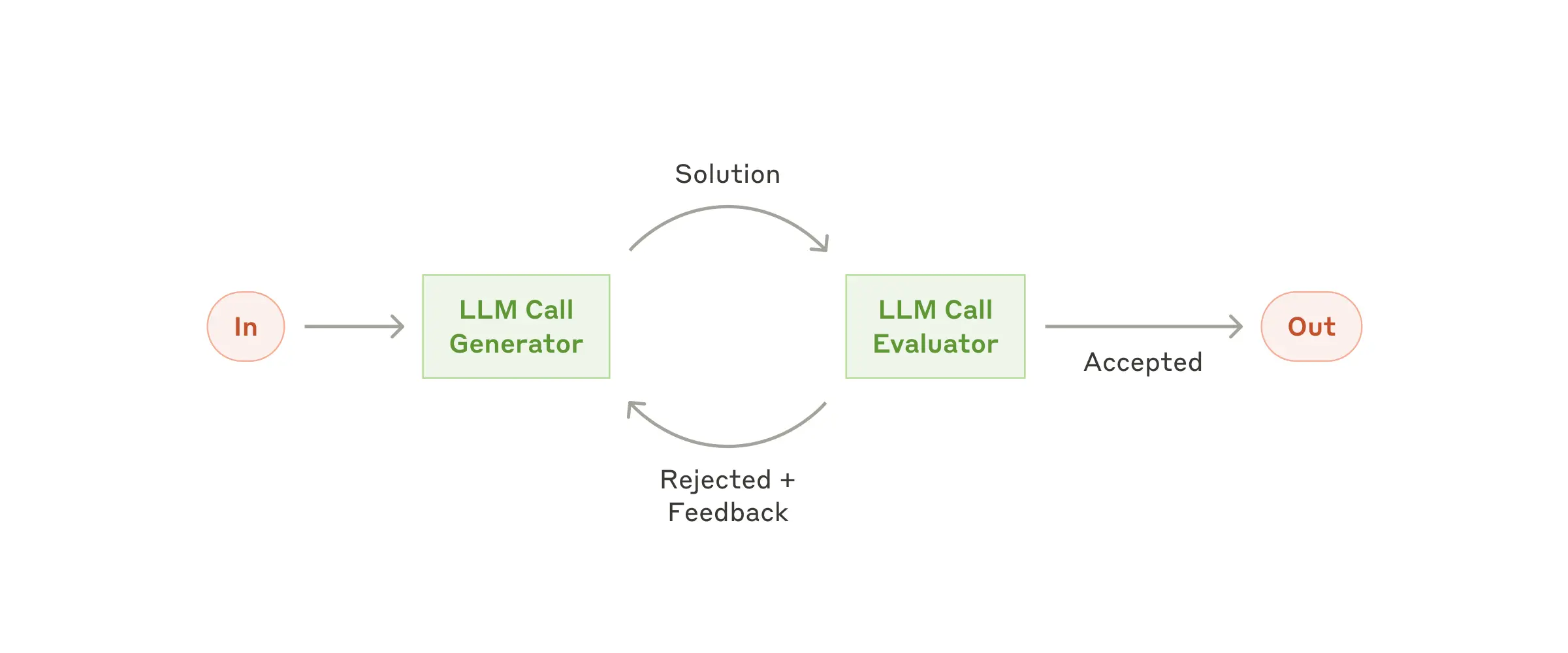Workflow Patterns
Evaluator-Optimizer
Quality control with LLM-as-judge evaluation and iterative response refinement.

Overview
The Evaluator-Optimizer pattern implements quality control through LLM-as-judge evaluation, iteratively refining responses until they meet specified quality thresholds.Quick Example
Key Features
- LLM-as-Judge: Automated quality evaluation using specialized evaluator agents
- Iterative Refinement: Multiple improvement cycles until quality threshold met
- Configurable Thresholds: Set minimum quality standards for different use cases
Use Cases
- Content Quality Control: Ensure documentation meets editorial standards
- Code Review Automation: Iteratively improve code quality and documentation
- Research Paper Refinement: Multi-pass improvement of academic writing
- Customer Communication: Refine responses for clarity and professionalism
Full Implementation
See the complete evaluator-optimizer implementation with research-based
quality metrics.
